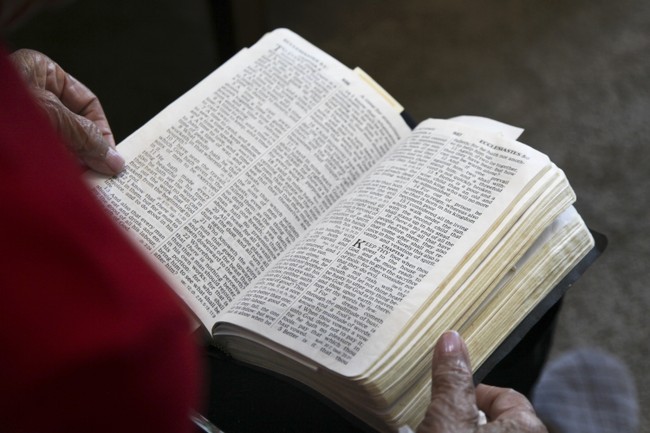
The entire history of biblical Israel is one of rebellion and repentance. God’s chosen people revolted against Him, and at least a remnant returned to faith.
I can’t imagine how difficult it was for Moses to lead such a stubborn people out of captivity and prepare them to enter the Promised Land. One place where we see the rebellion on full display is in Numbers 15-16. I recently heard a sermon where Dr. Albert Mohler discussed those chapters.
Numbers 15 begins with the Lord giving Moses some lengthy discussions of laws regarding sacrifices for sins — both intentional and unintentional. The chapter ends with regulations about the tassels, or tzitzit, that the Hebrew people were to wear on the fringes of their clothes to help them remember the law. In the middle of those, the people of Israel found a man gathering wood on the Sabbath, and they stoned him.
Related: Sunday Thoughts: The Torch and the Firepot
But the big story happens in Numbers 16. A group of 250 leaders among the Israelites rebelled against Moses and Aaron — with a gang of men leading them, including Moses and Aaron’s first cousin, Korah.
They assembled themselves together against Moses and against Aaron and said to them, “You have gone too far! For all in the congregation are holy, every one of them, and the Lord is among them. Why then do you exalt yourselves above the assembly of the Lord?”
Numbers 16:3 (ESV)
But Moses took them up on their challenge:
When Moses heard it, he fell on his face, and he said to Korah and all his company, “In the morning the Lord will show who is his, and who is holy, and will bring him near to him. The one whom he chooses he will bring near to him. Do this: take censers, Korah and all his company; put fire in them and put incense on them before the Lord tomorrow, and the man whom the Lord chooses shall be the holy one. You have gone too far, sons of Levi!” And Moses said to Korah, “Hear now, you sons of Levi: is it too small a thing for you that the God of Israel has separated you from the congregation of Israel, to bring you near to himself, to do service in the tabernacle of the Lord and to stand before the congregation to minister to them, and that he has brought you near him, and all your brothers the sons of Levi with you? And would you seek the priesthood also? Therefore it is against the Lord that you and all your company have gathered together. What is Aaron that you grumble against him?”
Numbers 16:4-11 (ESV)
And Moses said to Korah, “Be present, you and all your company, before the Lord, you and they, and Aaron, tomorrow. And let every one of you take his censer and put incense on it, and every one of you bring before the Lord his censer, 250 censers; you also, and Aaron, each his censer.” So every man took his censer and put fire in them and laid incense on them and stood at the entrance of the tent of meeting with Moses and Aaron. Then Korah assembled all the congregation against them at the entrance of the tent of meeting. And the glory of the Lord appeared to all the congregation.
Numbers 16:16-19 (ESV)
The next day, Moses warned the people to back away from Korah and his co-conspirators Dathan and Abiram. The three men and their families stood at the entrances to their tents, and Moses told the people of Israel that they would witness God’s confirmation that Moses was His messenger. Immediately, the ground swallowed the men, their families, and all their belongings. Furthermore, fire consumed the 250 men who were prepared to offer their rebellious sacrifice.
Mohler pointed out that these men wanted to offer their own sacrifices in rebellion against Moses, Aaron, and the Levitical priesthood that God set up in His law. So God obliged them and made them the sacrifices. He commanded the priests to take the men’s bronze censers and hammer them into a covering for the altar.
Jesus’ brother Jude used this story as a warning against those who continue to rebel against the Lord, telling his readers, “But these people blaspheme all that they do not understand, and they are destroyed by all that they, like unreasoning animals, understand instinctively. Woe to them! For they walked in the way of Cain and abandoned themselves for the sake of gain to Balaam’s error and perished in Korah’s rebellion,” (Jude 10-11, ESV, emphasis added).
“But all I am seeking to do with that New Testament reference is to point out that centuries and centuries and centuries later, the Lord through Jude will bring the rebellion of Korah back to mind, not just for a warning against Israel, but a warning to the church of the Lord Jesus Christ,” Mohler said in his conclusion.
It’s a warning we can all understand today. After all, rebellion is part of our human nature, and we must battle against it.





